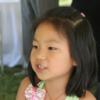Search the Community
Showing results for tags 'Adoption'.
-
this is my question .... can my fiance adopt her 10 year old neice and the niece be approved to come here either when she does or after we marry She seem's to think it would be easy for her to adopt the child would the u.s goverment have a issue with this if i did a I-134 what would it matter ? any one have similar experience I have meet the niece on 3 different occasion's and the niece live's in the home with my fiance I even have pic's with me and the niece my fiance as well care's for the niece taking her to school and doing things for her I hope this give's enough info
-
My daughter (not offical yet) still has her chinese name. She recently obtained her green card. She wants to have an offical American name for school and her friends. I can legally change her name before the school term or apply for adoption, which I am told takes much longer and might not be done by the new school term next August. Any suggestions or guidance would be appreciated.
-
Sorry about the title - it must be a little confusing, and let me clarify: If an American has married a Chinese woman, what is the relation between the Chinese woman's unmarried children and the American? Adopted children and stepfather? Or else? This question has arisen because during the interview, an applicant is asked to provide evidence of his or her relationship with the petitioner or other applicants. What evidence does the applicant have to provide if his or her mother, the petitioner's new spouse is applying for a CR1 and he or she is applying for a CR2? If there is a relation of adoption between the applicant and the petitioner as mentioned above, does he or she have to submit documents like adoption certificates? If so, is there an age level, applicants older than which don't need to provide such documents? If not, or, if there is not such a relation, what evidence does the applicant have to provide? Evidence of his or her relationship with his or her natural mother - the petitioner's new spouse? Or evidence showing that he or she is getting on well with the petitioner - his or her mother's new spouse? Or both kinds are needed? Thanks a lot.
-
A member asked me to find out if a petitioner can adopt the child of the beneficiary while going through the K-1 visa process.
-
The Child Citizenship Act of 2000 provides that foreign born children of US Citizens who live in the US. While this is targeted more toward adopted Children the qualifying definition of a Child by the UCSIS is the standard. So if you married your SO any children under the age of 18 at the time of your marriage qualify.Definition of a Child This means they do not go through the same naturalization process in the same way as others. One source states that the USCIS will automatically mail a certificate of citizenship, while another shows a significant reduction in the paperwork for the certificate and bases the process on the USCIS case file for the child as all the evidence required. The State Department and USCIS web sites both have this filed under the Adoption category, but the definition provided does not require adoption. Take a look at U.S. Citizenship by Birth or Through Parents Congratulations to those who can benefit from this process.
-
I know that the answers varies from state to state, However.... Have you any experience in adopting your wife's children? For adoption, is any document/statement needed from the ex-husband? How about establishing legal guardianship?
-
Hello My Haixia has just completed the paper work for her divorce(10/25/2005) and the adoption of her niece(10/30/2005). I am planning on submitting the I129F this week. She has been living apart from her Ex for about 2 years now and has been financially responsible for her niece for the last 4 years. My question is, will immingration question the timing of her actions? Or will they think our marriage is a sham? What supporting document do you feel she should have other then the divorce and adoption paperwork? Do you think she needs to write a letter discribing the reasons for the divorce? The mother of the child is Haixia's sister in-law and the father is dead. Any ideas on this? Carl
-
Hi all, Since Lizi and Mimi have arrived I haven't had many free moments that I could put together and spend time on CFL. But, now I come to you all in your infinite wisdom to ask if there is anyone out there who has adopted their spouse's children? This is not an issue that I have raised in insecurity, but one that Lizi has decided would be good us as a family. So if you are out there, I thank you for your experience. Tom
-
Hello, I am probably being a LITTLE proactive here, but I would like to know about the experiences of other CFL members with bringing an over-16 child to the US with your SO. Please comment particularly on adoption and how you went about making sure medical insurance, etc. is in place.
-
Does anyone possibly know what is involved for me to adopt my new (Chinese) wife's son from her previous marriage in China here in Florida? I brought him here with his mother on K1/K2 visas. Now that we are married, I'd like to adopt him to give him my family name and make him feel more a part of our family. The big problem is that I'm not sure if it is possible to get her ex-husband's consent for me to adopt (his) son. Is there a way around this? Has anyone done this themselves, with or without a lawyer? At the legal library today, the librarian told me that it certainly wasn't something she would attempt to do herself. Having been through the K1/K2 and then the AOS process already, I'm not afraid of paperwork. I just need help. Thanks in advance. -jim
-
Steve has an interesting post here in Culture and Language about his observations in Guangzhou about Chinese Adoption. Since I have been through that process twice, I thought I would add a few links that will get anyone curious abou this process to the right information quickly, and bypass the bogus (and sometimes fraudulent) sites out there.... First, a few facts: The Chinese have one of the most structured (and fairest) systems for international adoption of any country in the world. (there are no "back door") adoptions, or baby selling in China anymore, that arn't also severly punished if discovered --- including having the participants put to death. This doesn't mean that baby selling doesn't occur --- in fact, it is on the increase domestically within China, as parents are now seeing that because of selective abortion and girl infantcide, their sons in some areas, will have no hope of finding a bride locally, and are actually buying girl infants to be raised as perspective wives. But these girls are out of the official loop. They will not have Chinese registration papers, and officially, don't exist. --- the US State Department would never permit ANY of these children to be adopted by American citizens (and thus, can not obtain a visa in GZ .... sound familiar?) China has one agency, CCAA (China Center for Adoption Affairs) in Beijing that has absolute control over all the known (offical) orphans in China. All adoptions in the provinces are actually handled by CCAA --- that is, the actual child assignment is done in Beijing. Anyone curious about the process -- start to finish -- should begin their search at Families With Children From China (FCC) ---fwcc.org.--- this is a powerhouse resource, and FCC has local chapters all over the US. The process to find a local international adoption agency would be this: 1. Go to fwcc.org home page 2. click on "Find your nearest FCC center" 3. find the local chapter and contact information, and make contact. Each chapter will be happy to refer you to parents who have adopted through several local agencies, and these parents will be happy to describe their experience with the ageny. Also, even if you are lukewarm about the idea, many FCC chapters have introduction meetings, where people considering Chinese adoption can go and ask parents who have been through the process just about any question --- you will find that we are very open and honest. FCC has chapters nationwide that range in their level of organization and involvement. Several of the strongest are: NY, So.Cal ...... and yes, OREGON! ---KIM
-
http://www.boston.com/news/globe/magazine/...oe_makes_three/ And Zoe Makes Three When the author and her husband felt ready for children, nature stood in their way. Their road to adoption would end four years later and 8,000 miles away in the most surprising five-star hotel. By Janice Page | October 3, 2004 Our Going Home Barbie is the mod-hippie version. Her long hair isn't Malibu blond but is instead the color of a wet sand dune, with a few strands pulled into a side braid that dangles down her famous plastic chest. She wears a tan suede-looking skirt and visor, an off-the-shoulder floral blouse, and (what else?) open-toed hot-pink heels. As always, in her hands she holds a Chinese baby. I say "always" because, unlike other Barbie accessories -- Corvettes, handbags, Ken -- the black-haired bundle of joy isn't just another piece of interchangeable packaging. Though this doll gets a fashion makeover every year, she's defined by an androgynous-looking child held stiffly at her waist, which in all honesty makes her look even sillier than that time she attempted math. Our mod-hippie version looks particularly uneasy. "Motherhood is hard," I think she'd say if she could. Going Home Barbie is a special-edition doll that Mattel has been manufacturing in various styles since 2001. She can't be found in stores, and she isn't being hyped on Saturday-morning TV; only about 6,000 of her kind are made each year, and all are distributed free at just one location in the world: the White Swan Hotel in Guangzhou, China. To get the doll, you have to stay at the famous five-star hotel, and you have to check out with at least one more child than you had when you entered the country. Of course, we didn't adopt a baby to get a doll. My husband, James Tseng, and I didn't even know that Going Home Barbie existed before she showed up in our hotel room one day last February, along with fresh towels and an explanation that read in part: "This souvenir is presented by Mattel (HK) Ltd. to adopting parents of Chinese orphan children." By then we'd come to expect absurd surprises from the adoption process, so it hardly fazed me to be suddenly likened -- at age 42, no less -- to a poseable beauty queen with perfect measurements and proudly vacant eyes. In fact, despite my ready cynicism and usually dependable feminist filters, I actually found Mattel's opportunistic marketing at least as savvy as it was unsettling. Face it, even HBO's Sex and the City managed to work in a Chinese adoption for one of its characters before the raunchy comedy wound down this year. At the White Swan, Mattel doesn't just hand out Barbies; the company also sponsors a playroom stocked with piles of its own toys and giant reminders of branding. Each corporate dollar spent should tell you something about how significant American adoptions of Chinese foundlings have become in the last few years -- consider that if John Kerry wins in November, an adoptee from Chongqing will be the niece of the US president -- and about the role that the White Swan plays in hosting most of them. Still, try as they might, 6,000 identical Barbies can't begin to embody 6,000 unique adoption stories. Maybe that's the real reason our mod-hippie doll looks so uncomfortable. FOR US, THE ADOPTION odyssey began officially in December of 2002, when we wrote our first checks to China Adoption With Love Inc. (CAWLI), a small nonprofit outfit headquartered in Brookline. In far more important ways, though, the process was in motion long before agencies and governments became involved. Most everybody assumes that adoption is a fallback position. Especially if it's your first child, people typically want to know what made you decide to adopt (translation: couldn't you give birth?) and why you chose to adopt from China. Given that there are more than 125,000 foster-care children awaiting adoption in the United States, as well as countless other abandoned children around the globe, that last question is as understandable as it is loaded. I can't answer for other prospective parents who have their own valid list of practical and emotional considerations. In our case, the reason we gravitated toward China is partly obvious: James is Chinese. He was born and grew up in southern Taiwan, where his parents had found refuge in 1949 when Mao Zedong's forces drove Chiang Kai-shek loyalists -- including James's father, an air force sergeant -- from the mainland. There was danger in the escape, so his parents left their only child at the time, a 5-year-old daughter, behind with family in Guilin, certain that they would return in a couple of years to reclaim the young girl, along with their homeland. Instead, it took James's by-then-widowed mother four decades to reconnect with her daughter, and the loss of those years haunted the family even after their reunion in 1989. I was interested in adoption long before I first heard that story from James while we were dating, but I think I viewed the idea differently ever after. There seemed something almost poetic about extending a hand to one at-risk child in the same part of the world where another had been left behind. It wasn't about "saving," because Chinese children don't need to be saved by us any more than unlucky American kids need rescuing by hobbits. It was an opportunity to enrich our lives while also giving something back, and the prospect of that felt enormously right to me. Perhaps because James and I are the youngest offspring of large families (Scottish-Italian, in my case), we'd never felt pressure to procreate for reasons of heritage, tradition, security, or ego. For a variety of reasons that ranged from selfishness to deep-seated fear, we weren't even sure we wanted children. And the adoption option spared me from getting caught up in ticking biological clocks or feelings of regret; I knew that if I wanted to be someone's mother, I could make it happen. Whenever. And then when I wasn't looking, I fell right into the Valley of Clomid. Maybe it shouldn't have surprised me to wind up there, but it did, after genetic testing revealed that I should be the one in my family to procreate. At age 38, I was the only one of my parents' offspring to be declared free of a mutation that invited breast and ovarian cancers. Also, I was the only one without children. Given that one sister had died of breast cancer at 34 and another was battling advanced ovarian cancer at 58, on some level it offended me that my unmutated genes might go to waste. A combination of guilt and duty told me to go forth and multiply. So, like half the women I know, I spent the next couple of years punishing my achievement-oriented psyche, trying to prove that I could have a biological child if I wanted one, rather than examining whether that had become what I really wanted. When I finally stepped back from fertility drugs like Clomid, acupuncture, strange Asian teas, and other monthly ways to drive myself crazy, I realized that while I was happy for women who'd made medical advances work for them, most modern fixes just weren't for me and they especially weren't for James, whose traditional upbringing didn't mesh at all with making sperm deposits in a cup. The one important thing we'd decided in all these months of timed intercourse was to open our lives to a child. If I could become a mother without morning sickness or stretch marks, so much the better. In the spring of 2002, we scheduled an informational meeting at CAWLI's Coolidge Corner offices. It made sense to us to adopt from China, not just because there was karmic balance to it but because our household already offered the language and heritage of that country. And we preferred a girl, which Chinese adoption policies seemed more than prepared to accommodate. If James wasn't a chef/restaurateur, he would probably be a Chinese-history professor. At 45, he's a voracious reader, blazing through several books a week, mostly biographies of leaders and analyses of key events that have shaped Chinese life. He knows about the economic and cultural forces that have historically led girls to be valued differently (not always less, as is commonly believed) from boys. And he knows the realities of the one-child policy introduced by China in 1979 to restrict population growth. Actually, "one child" is somewhat of a misnomer. In practical terms, the law -- it can impose substantial fines, forced sterilization, and other penalties on parents who violate its dictates -- promotes a "one son or two child" policy, as noted by Karin Evans in her book The Lost Daughters of China. That means couples who have a girl first are often allowed to try for a son, and it also means, according to Kay Ann Johnson's Wanting a Daughter, Needing a Son, that many of the girls in Chinese orphanages have an older sister whose parents wanted one more shot at a boy. "China has lost its balance," James sometimes laments. Such is the everyday consequence of government logic. Before our first adoption agency visit we discussed these myopic population curbs, in case one day we needed to defend our role in the very system that might have led to our daughter being abandoned by her biological parents. I knew we were adopting for the right reasons in theory, but I worried that we were in some ways helping to perpetuate a horribly misguided doctrine. Were we really just fueling a baby trade? The truth is, we couldn't be sure. But there remained a pile of excellent reasons for us to adopt from China, and we couldn't see ignoring those, or the plight of little girls lying in orphanages today, just because we wondered how history or filmmaker John Sayles might characterize us tomorrow. From US immigration data, we learned these basic statistics: More than 40,000 Chinese orphans have entered the United States since China enacted laws regulating foreign adoptions in 1992, with upward of 6,000 new orphans now arriving each year. China is now the leading contributor to more than 21,000 international adoptions by US residents annually. Reliable data from the Chinese government are harder to come by. Even insiders such as CAWLI director Lillian Zhang know little beyond what goes on in the few orphanages that they're allowed to visit. For example, though Chinese officials claim the number of foundlings is currently something like 160,000, experts guess it could be 10 times that high. Zhang, whose agency annually donates around $60,000 to state institutions for everything from washing machines to education programs at Chinese orphanages, claims the overall numbers aren't important when it comes to improving the quality of life for the children she sees. "We don't need to know certain things," she says emphatically. "Bigger-picture things don't even matter to us." Yet this great wall of secrecy is part of why Nanjing-bred Zhang, a slender, middle-aged woman with measured speech and caring eyes, is forced to warn her clients of the many things that can go wrong in this process, from simple paperwork snafus to grave undisclosed medical conditions. The Chinese have crafted an adoption system that's a tidy enterprise; still, when problems arise, it's often in the shadows. What I got out of our informational meeting was to expect the unexpected and don't even sign up for the long, arduous international adoption process if you can't bring a lot of patience to the table. We began by assembling the mountain of required paperwork that includes financial statements, letters of reference, autobiographical essays, and doctors' assessments. There were criminal-background checks to pass, as well as social-worker evaluations and one lovely morning of fingerprinting. James spent a full day in court discovering the merits of paying your traffic fines on time. Seven months later, in August of 2003, our paperwork finally cleared all the US hurdles and moved overseas. This important hallmark is known as the DTC date -- as in, dossier to China -- and it starts the clock ticking on a waiting period that at the time was 10 to 11 months (now down to six months) before resulting in the referral of a child. We expected assignment of a baby in June or July of 2004. Imagine our surprise when China replied in just 14 weeks. IT WAS NEARLY Thanksgiving 2003, and I was sitting at my computer wrestling with rewrites of the novel I wanted to finish before surrendering to a spate of baby preparations in the spring. The phone rang. A voice identifying itself as a CAWLI representative said something like: "Referrals just came in . . . blah, blah, blah. Your baby . . . blah, blah, blah. Ten months old. . . . There are three pictures here. Oh, she's a doll! . . . Blah, blah, blah. Can you come down to the office today?" I laughed, it was that ridiculous. Your daughter is coming now, instead of eight months from now. Oh, OK. Never mind that we hadn't covered the radiators or bought child locks for the cabinets or painted the spare bedroom adjoining ours. I hadn't even cracked one chapter in a growing stack of books on child-rearing and adoption. With this little lead time, how were we to be the neurotic, over-informed American parents our child deserved? I called James, who laughed even harder, and he cut his day short at the restaurant so that by afternoon we were sitting in a small room at the adoption agency, looking at already outdated photos of our 10-month-old daughter. The voice on the phone hadn't embellished: She was a doll. But a doll quite unlike anything we'd find in our Going Home Barbie package at the White Swan Hotel several weeks later. The best adjective for her was "pensive," with alert, probing eyes that made me want to scoop her up and answer all her questions. In one photo she was propped up by a large stuffed tiger; in another, a ratty old car-seat cover cradled her tiny frame, made plumper by layers and layers of heavy clothing that no self-respecting Chinese baby is ever without. She looked tremendously healthy, if anything could be determined by snapshots, and I loved that at 6 months old, she already seemed skeptical. Her name was Yi Li Ge -- the last name of Yi given, as all from her orphanage are, to designate the county of Yiyang in northeast Jiangxi Province, where she was found abandoned near the gate of the local civil affairs office on January 24, 2003. From a one-page "growth report" supplied by the orphanage -- all the background that most of these kids come with -- we learned that she was taken in on the morning after her birth and spent only five weeks in institutional care before being placed in a foster home. The English translation makes no mention of it, but, in Chinese, the document also says that she spent her first cold night of life outdoors, wrapped in a thin blanket inside a cardboard box, so was purple and half-dead from exposure by the time she was discovered. I guess it's just lucky for us that James reads Chinese, otherwise this precious piece of her limited history might have gone unknown, as it probably does too often. Li Ge can be translated as either "Little Pigeon" or "Little Dove," neither of which seemed to suit this fireplug of a girl. I wondered briefly if we should keep any of what she'd been called, but James said the monikers were assembly-line quality. Anyway, he was deeply attached to the name Zoe, which not only means "life" in Greek but also sounds like the popular nickname of a classy Chinese ruler (King Wen) who founded the Zhou dynasty in the 12th century BC. "Oh, my," the adoption worker said as she leafed through our growing file. "Your DTC date is August? Well, no wonder you were surprised when I called this morning." Then she added, with an edge of concern, "So, is this OK?" Interesting question, and, frankly, one that I might have answered differently an hour earlier. Now, though, we had seen Zoe's face. Now we had started to picture ourselves through her quizzical eyes. Now there was no easy turning back. MANY PEOPLE IN THE Chinese adoption community believe in the legend of the red thread, which supposedly binds us, from birth, to those we are destined to love. The imaginary threads "may stretch or tangle," goes the proverb recounted in countless adoption-related books and websites, "but they will never break." Singer-songwriter Lucy Kaplansky was captivated enough by this notion to title her heartfelt latest CD The Red Thread, in honor of songs tied to her 2003 adoption of 10-month-old Molly from Sichuan Province. "My husband and I can't conceive of not having had Molly in our lives or her ending up with somebody else," the 44-year-old entertainer explains. "She's so right for us; I really believe that we were tied to her through something like the red thread." I'm harder to convince when it comes to matters of fate, but I have to agree that there's some kind of magic at work in the matching of Chinese babies with their adoptive parents. From just a few photos and basic background information, workers at the China Center of Adoption Affairs, the government agency responsible for international adoptions, somehow churn out pairings that leave parents in awe. "How do they do it?" we all say. "How could they possibly know that the perfect baby for us is [fill in the blank]?" Like Kaplansky, we can't imagine our children with any other parents. And yet, we know that they have birth parents somewhere -- once vibrant red threads that we shouldn't assume were "fated" to be clipped so abruptly. The mysterious tangle of Zoe's past was on my mind constantly in the many weeks leading up to our trip to China in late January, weeks made that much more stressful by travel delays and concerns ranging from lunar New Year holiday closings to bird flu outbreaks and SARS paranoia. When I wasn't wondering why Zoe had been abandoned or how she was faring in foster care, I was worrying about whether I had the nerve to be anyone's mother. By the time we finally got to Nanchang on February 1, after two days of frigid sightseeing in Beijing, I was wound tight. And Nanchang isn't the prettiest place to decompress. In 1927, Jiangxi's capital city of Nanchang was the site of a famous uprising. Today, it is an unglamorous city with grimy air and dicey drinking water, where one goes to collect foundlings from the most remote reaches of impoverished Jiangxi Province. If that sounds harsh, it's really only meant to be honest; James's father's family actually comes from Jiangxi (we assume this is why our referral was expedited so dramatically), so we know the natural beauty of its countryside. Unfortunately, I can't comment on splendor lurking just outside Nanchang's underachieving downtown, because we didn't have time to see any of it. We were in Nanchang to meet Zoe, who was there along with 32 other children intended for adoption by clients of CAWLI. Our "union," as some refer to it, came in a third-floor conference room at Nanchang's Gloria Plaza Hotel just hours after our plane had touched down at the local airport. A sign outside the room read in Chinese: "Today's event: clothes sale." Inside, half a dozen mostly unhappy children were arranged along a row of chairs, prompting immediate chaos as prospective parents strained to determine whose kids they were. The children were being presented to us grouped by orphanage, but after this first batch cleared, the formality of the chair display was abandoned to an overlapping cascade of youngsters arriving too quickly for any of us to process. As each child was brought into the room, her Chinese name was called out by one of our unflappable tour guides, who'd wait to see if there was recognition before calling for the parent by name. It seemed a kind of test, suggesting that if you couldn't recognize your kid's Chinese name, maybe you should get a toaster or a bootlegged video instead. Not that we needed any help feeling inadequate. As screaming children filled the stuffy room, the urgency to hand them off increased, so that by the time they got to our Yiyang group, orphanage workers were bumping into one another scooting back and forth, depositing kids as unceremoniously as bundles of firewood. We thought we heard someone shout "Yi Li Ge!" above the din, and the next thing I knew, she was there in James's arms, wailing so loudly that even in this noisy, chaotic soup, heads turned. She was red and hiccupping from all the crying. She was also sweaty, smelly, overdressed, and pissed off. The encounter wasn't love at first sight; in truth, as she remained inconsolable for the entire 90 minutes that we waited to get our stamp of approval from Chinese authorities, I questioned the extent of my stamina. Red threads notwithstanding, there wasn't any magic in this moment. Luckily, moments pass. When we were finally back in our hotel room, all that Zoe needed to improve her mood was a change of scenery, fresh clothes, and some formula. We wiped her down but dared not try a bath. Less than 30 minutes after we'd left that crowded conference room scared out of our minds, Zoe was lying on our bed, laughing. And that was magic. IT'S BOTH ASTOUNDING and humbling to bond with an adopted baby, because you realize that as glad as you are for the speed and depth of the relationship, it essentially means you could be replaced by yet another caretaker with the same quick ease. Zoe, by now 12 months old, grew more comfortable by the minute in Nanchang. She smiled frequently, babbled determinedly, and roamed the hotel halls by holding onto our fingers. By the second night, she was sleeping 12 hours without interruption (still does), and she seemed remarkably content. Best of all, as the TV in our room was broadcasting the New England Patriots' Super Bowl win in hyperventilated Mandarin, Zoe was pronounced "perfect" by one of two American doctors who'd accompanied our group on the trip. (Once back in Brookline, we'd find out that she actually did have an elevated lead level of 31 micrograms per deciliter, but that developmentally undesirable condition was remedied quickly via iron supplements and -- whether we liked it or not -- costly state-ordered lead abatement of our 1920s condo.) When we had free time to venture out onto the streets, we were -- as our guide Chen Chen put it -- "like pandas in the zoo." The Nanchang locals have seen enough Americans pushing strollers at this point to stop viewing them as a novelty, but we were still a curiosity. They weren't shy about staring, or pulling at a child's pant leg if it rode up to expose some skin, and a few might have been heard muttering "shenjingbing" ("crazy") as we ambled past. I don't blame them. We must have looked at least as ridiculous as Going Home Barbie, parading around with their native daughters now dressed head to toe in Baby Gap. Friends of ours who live in Guangzhou say that most Chinese are grateful to non-Asians who adopt those in need but also embarrassed and angered by an exodus that might be less necessary if China's domestic adoption system were better supported and promoted. Zhang says official policies and attitudes are changing slowly. In the meantime, outsiders going to China to adopt will continue to be seen with a broad mix of emotions, including -- for good reason -- amusement. Even though several in our group had other children at home or along for the trip, and a surprising number had been down this exact road before, there were always new opportunities to appear completely clueless. By the third or fourth day in Nanchang, many of us were wearing our mistakes on our fingers, sporting Band-Aids where we'd been reminded that these kids have teeth already. We were learning who our little people were, as well as where they were developmentally, a curve made less steep by China's new goal of foster care instead of orphanages for all international adoption candidates. I discovered that Zoe's left eyebrow curls into a tilde when she's puzzling over something. She likes sticky rice and eggs; she doesn't like caterpillars. In true red-thread fashion, she's perfectly matched to us not just because she's the spitting image of James's own baby picture, but because she loves the spotlight, has an absurd sense of humor, knows what she wants, and appreciates Aimee Mann CDs. Part of what made Nanchang special was sharing our first days of parenthood with people who sometimes had very little else in common, hailing from places as disparate as Kansas City and Newburyport. Though the group was in many ways too large (most are about half as big, says Zhang), it felt cohesive while we were staying at the Gloria. Occupying two floors of the hotel, we threw open our doors and mingled over snacks and baby toys laid out in the hallways. We gossiped, marveling that two adoptees in our group might be twins (given without government apology to parents from different Midwestern states) and sympathizing when we heard about a mother's difficult decision to refuse a girl who'd arrived with undisclosed neurological problems. Many shoulders comforted another mother who wondered if she could go through with her adoption at all. The repeat adopters knew that life might be easier, or at least more luxuriously appointed, when we got to Guangzhou, but it would never again be as intimately shared as by our 33 families. The rest of us were just anxious to see what life was like at the crossroads of adoption: the White Swan Hotel. ON TINY SHAMIAN Island overlooking the Pearl River, the White Swan Hotel sits just around the corner from the US Consulate, a fortuitous location that has made the inn adoption central for thousands of American families with important personal business to complete. No matter which province an abandoned Chinese child hails from, she or he must pass through this floating nugget of Guangzhou to obtain documentation necessary to enter the United States. And the White Swan is famously ostentatious enough that most every family shuffles through its doors to get a look, whether or not they're overnight guests. It's an odd place that has even inspired a children's book (The White Swan Express: A Story About Adoption), which seems about right. If all you ever saw of Asia was Shamian Island and the inside of the White Swan, you'd think China was Epcot, but with more earnest service. Guangzhou, formerly known as Canton, was once the country's gateway to foreign trade and tourism. Most of the city is congested and bustling, but on quaint, clean Shamian Island, the architecture reflects European colonialism and the steamy weather supports a casual pace. Everythingelse supports a modern lust for commerce. "Best deal here for baby clothes," one shopkeeper after another insisted from the open doorways lining the streets. Before you drop a single yuan, the shopkeepers lend you a stroller, arrange to do your laundry, or transmit a family photo over the Internet. Some will even write your new child's name in frame-ready calligraphy, presenting it to you as a gift. Why? Because all of Shamian Island knows what Mattel knows: Be good to adopting families, and they'll be good to you. That's an attractive business proposition in general, and at the White Swan (also known as the White Stork) especially. Though it's still primarily a hotel geared to business travelers, at least 20 percent of the White Swan's guests are now adopting families -- most visiting from the United States -- who frequently exceed its fleet of 180 cribs for 843 rooms. When they're not stuffed into backpacks and strollers, kids who can toddle roam the shoplined corridors like some tiny drunken gang, stopping to climb over every stone Buddha and foo dog in their path. At breakfast, they fill up the hotel's 100 highchairs before most sensible travelers are awake, and they drool on the cereal buffet whenever dad, child in arms, leans in too close. Eventually, they're corralled for group photos by the lobby's towering waterfall and along a massive red couch, rituals that adoption organizations have turned into rites of passage. Outside the hotel, many of the families in our group ate burgers and burritos in Westernized cafes and bartered for knockoff Polo suitcases to transport souvenirs. Our official business spilled into the international health-care center, where screaming-baby examinations were conducted near overmatched "Keep Quiet!" signs, and then we zipped past waiting Chinese throngs at the US Consulate so that a functionary could end our swearing-in by announcing: "This concludes the world's most bureaucratic process." He couldn't have been more wrong. Nothing that happens on Shamian Island marks the end of a process. On the contrary, the world just gets odder and more complicated from there. Ask comedian Julia Sweeney, who three years ago left Guangzhou with an adopted 16-month-old and the seeds of a witty 70-minute theatrical monologue called "In the Family Way." The former Saturday Night Live star reports that parenthood has made her more compassionate and understanding ("I thought of myself as those things before. But, boy, by comparison, I am really understanding now," she says with a laugh), which comes in handy when she's at home in LosAngeles and a dim-sum vendor asks in front of her daughter, "How much you pay for her?" Since returning from Guangzhou, I've fielded many similar questions, and, like most adoptive mothers, I've learned not to be offended by pragmatism or tactlessness. (For the record: Our tab ran about $13,500, including two weeks of travel.) I've also come to realize that I would probably be dealing with the same inquiries if Zoe were our biological daughter; that is, even if she were only half-Chinese, people might assume she was adopted when she was out with me alone. So I'm Going Home Barbie either way, which I suppose is better than being Going Home Midge. Anyway, by the time we left the White Swan, it didn't matter how toy companies or curious strangers saw us, because Zoe was already calling us Mama and Baba, and that was more than enough to live up to. Each day now, I try to see the world as I'd like Zoe to see it. When she stops to point excitedly at every airplane that passes overhead, I hope some part of her is remembering China. As she grows and asks questions, I hope she always believes her journey was both from and to a place of love. And, someday, I hope she understands that she saved us.







